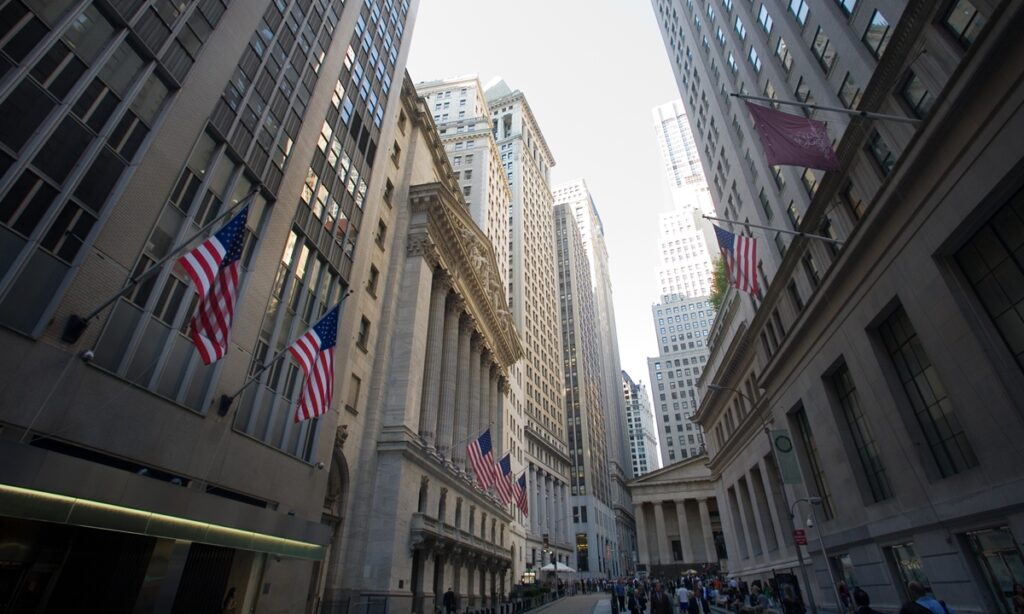Moody’s Investors Service on Tuesday downgraded several US banks and flagged several others for potential downgrades, signaling that the US banking crisis is far from over, even after the collapse of five banks so far this year. Experts said that irresponsible US monetary and fiscal policies have further shaken international confidence in the American financial system.
Moody’s cut the outlooks for US banks including Capital One, PNC Financial Services Group, Fifth Third Bancorp, Huntington Bancshares and Citizens Financial Group, and put several others on review for downgrades.
The ratings agency said that the US banking sector is facing “several sources of strain,” such as funding pressures, regulatory capital weaknesses and rising risks associated with commercial real estate exposures.
US banks’ second-quarter earnings showed material increases in funding costs as well as profitability pressures related to the significant and rapid tightening in US monetary policy and an inverted Treasury curve, Bloomberg reported, citing Moody’s.
Since March 2022, the Fed has aggressively raised its key interest rate 11 times, leading to a cash crunch for banks, Li Yong, a senior research fellow at the China Association of International Trade, told the Global Times on Tuesday.
Just about a week ago, a small lender in the state of Kansas named Heartland Tri-State Bank was closed by local regulators, the fifth US bank failure so far this year.
The sector will face continued turmoil as the current rate hiking cycle, though it is widely viewed as about to wrap up, has put huge pressure on US banks’ operations. Moreover, the fundamentals of the US economy do not yet warrant a strong rebound, Li said.
After the demise of Silicon Valley Bank and Signature Bank in March, a study on the fragility of the US banking system found that 186 more banks were at risk of failure even if only half of their uninsured depositors decided to withdraw their funds, USA Today reported.
According to a survey released by Gallup in May, 48 percent of US adults said that they were concerned about the money they had in banks and other financial institutions.
Moreover, the vacancy rate of commercial real estate in the US has increased, and the loan default rate has rebounded. Once the risk spreads, it will cause another blow to small and medium-sized banks, according to media reports.
The Moody’s move followed Fitch Ratings’ recent cut of the US sovereign credit rating. Citing fiscal deterioration over the next three years and a steady deterioration in governance over the past two decades, Fitch downgraded the US’ long-term foreign-currency issuer default rating to AA+ from AAA.
A series of events – consecutive interest rate hikes, bank failures, the debt ceiling crisis and ratings downgrades – have alarmed global markets, experts said.
Due to the special status of the US dollar in the global economy, US financial and fiscal policies have a significant impact on global financial stability. The fallout in the US would spill over to other countries, Gao Lingyun, an expert at the Chinese Academy of Social Sciences in Beijing, told the Global Times.
Countries or regions with poorer economies usually have fewer tools to deal with any spillover and would face risks such as capital flight, experts said.
Since the effect of US financial and fiscal policies does not stay within border, the US needs to communicate with other nations when formulating macroeconomic policies. “As a major power, the US should bear the responsibility that comes with its policy choices,” Gao said.
(Global Times)




